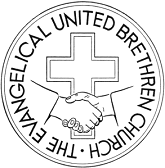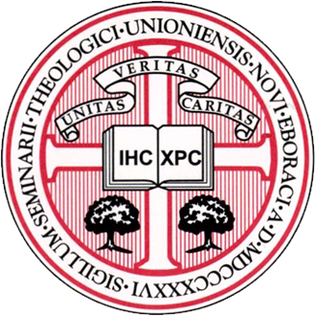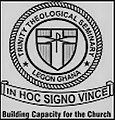
The Philippine Independent Church, officially referred to by its Spanish name Iglesia Filipina Independiente (IFI) and colloquially called the Aglipayan Church, is an independent Christian denomination, in the form of a nationalist church, in the Philippines. Its nationalist schism from the Roman Catholic Church was proclaimed during the American colonial period in 1902, following the end of the Philippine–American War, by members of the Unión Obrera Democrática Filipina due to the pronounced mistreatment of Filipinos by Spanish priests and partly influenced by the unjust executions of José Rizal and Filipino priests and prominent secularization movement figures Mariano Gomez, José Burgos, and Jacinto Zamora, during earlier Spanish colonial rule when Roman Catholicism was the state religion in the country.

The Evangelical United Brethren Church (EUB) was a North American Protestant denomination from 1946 to 1968 with Arminian theology, roots in the Mennonite and German Reformed communities, and close ties to Methodism. It was formed by the merger of a majority of the congregations of the Evangelical Church founded by Jacob Albright and the Church of the United Brethren in Christ. The United Brethren and the Evangelical Association had considered merging off and on since the early 19th century because of their common emphasis on holiness and evangelism and their common German heritage.

Union Theological Seminary in the City of New York is a private ecumenical liberal Christian seminary in Morningside Heights, Manhattan, affiliated with Columbia University. Columbia University lists UTS among its affiliate schools, alongside Barnard College and Teachers College. Since 1928, the seminary has served as Columbia's constituent faculty of theology. In 1964, UTS also established an affiliation with the neighboring Jewish Theological Seminary of America. Despite its affiliation with Columbia University, UTS is an independent institution with its own administration and Board of Trustees. UTS confers the following degrees: Master of Divinity (MDiv), Master of Divinity & Social Work dual degree (MDSW), Master of Arts in religion (MAR), Master of Arts in Social Justice (MASJ), Master of Sacred Theology (STM), Doctor of Ministry (DMin), and Doctor of Philosophy (PhD).

Protestant denominations arrived in the Philippines in 1898, after the United States took control of the Philippines from Spain, first with United States Army chaplains and then within months civilian missionaries.

Leontine Turpeau Current Kelly was an American bishop of the United Methodist Church. She was the second woman elevated to the position of bishop within the United Methodist Church, and the first African American woman.
Robert Eric Hayes Jr. is a member and serves as Bishop Emeritus of the Global Methodist Church. At its May 22, 2023, weekly meeting, The Global Methodist Church's Transitional Leadership Council (TLC) received the Rev. Dr. Robert Hayes Jr. as a clergy member in the new denomination and then immediately voted to confer upon him the title bishop emeritus. Hayes joins Bishop Emeritus Mike Lowry as the only other bishop granted that status.

Asia-Pacific Nazarene Theological Seminary (APNTS) is a graduate-level theological institution located near Metro Manila in the Philippines. APNTS is a seminary in the Wesleyan theological tradition and affiliated with the Church of the Nazarene through its Division of World Mission. Its mission is to prepare "men and women for Christ-like leadership and excellence in ministries." Its institutional vision is: "Bridging cultures for Christ, APNTS equips each new generation of leaders to disseminate the gospel of Jesus Christ throughout Asia, the Pacific, and the world.
Leo A. Soriano is a retired bishop of the United Methodist Church (U.M.) in the Philippines. He was elected in 2000 and held this position until 2012.
The South East Asia Graduate School of Theology (SEAGST) is a Protestant graduate school of theology, established in 1966 and operated by the Association for Theological Education in South East Asia (ATESEA) in cooperation with and on behalf of member schools of ATESEA. The headquarters is located in the offices of ATESEA in Manila, Philippines.

The Christian And Missionary Alliance Churches of the Philippines (CAMACOP) is a Christian evangelical group in the Philippines that originated from The Christian and Missionary Alliance (C&MA). It is one of the largest evangelical groups in the Philippines.
The Philippines Central Conference of the United Methodist Church is a collection of annual conferences of the United Methodist Church in the Philippines that are organised much like jurisdictional conferences in the United States. The Philippines Central Conference is considered a member church of the World Methodist Council, and a "Central Conference" of the world-wide United Methodist Church. It is also a member of the Christian Conference of Asia and the National Council of Churches in the Philippines as The United Methodist Church in the Philippines, representing the denomination as its Philippine counterpart.

The National Council of Churches in the Philippines is a fellowship of ten Protestant and non Roman Catholic Churches in the Philippines denominations, and ten service-oriented organizations in the Philippines. A member of the World Council of Churches and the Christian Conference of Asia, the NCCP represents close to twelve million Protestant adherents. Advocacy for environmental protection and against large-scale mining are part of its core mission. Christian organizations other than churches may be received as associate members.
Chin Christian Institute of Theology, also known as CCIT, is situated in Falam, Chin State, Myanmar. It is a school run by Chin Baptist Convention, which belongs to Myanmar Baptist Convention.

The United Church of Christ in the Philippines is a Christian denomination in the Philippines. Established in its present form in Malate, Manila, it resulted from the merger of the Evangelical Church of the Philippines, the Philippine Methodist Church, the Disciples of Christ, the United Evangelical Church and several independent congregations.
Alfonso G. Pablo Sr. is a retired ordained Filipino Wesleyan clergyman who was General Superintendent of the Wesleyan Church of the Philippines from 1989 to 2005, and was the chairman of the International Conference of The Wesleyan Church for four years from 2000. Pablo is currently General Superintendent emeritus of The Wesleyan Church of the Philippines, a distinguished professor at the Wesleyan Graduate School for Asia Pacific in Rosales, Pangasinan, adjunct professor at Asia-Pacific Nazarene Theological Seminary, and the chairman of Global Transformation Ministries, and chairman of the Asia Evangelistic Fellowship Philippines. Pablo has led various parachurch organizations in the evangelical community, including being the chairman of the Philippine Council of Evangelical Churches. In 2010, Pablo published a book, Transforming Leaders: The Filipino Church Administration. This followed by his second book Transforming Households (2014) and his third book Transforming Believers, October 2020. He is currently writing his fourth one, Transforming Faith.

Ang Iglesia Metodista sa Pilipinas is an indigenous autonomous Methodist church in the Philippines. The founders of the church, led by Presiding Bishop Rev. Lito Tangonan officially registered on December 7, 2011 the congregation with the Philippine Government through the Securities and Exchange Commission.

Asian Seminary of Christian Ministries is regional theological education and ministry training institution of the Church of God World Missions and a religious higher education institution recognized by the Philippine government.
The Presbyterian Church of the Philippines (PCP), officially The General Assembly of the Presbyterian Church of the Philippines, is a growing evangelical, Bible-based Reformed church in the Philippines. It was officially founded by in 1986 and the General Assembly was organized in September 1996.

The Trinity Theological Seminary is a Protestant seminary located on a 70-acre campus in Legon, Accra. As an ecumenical theological tertiary and ministerial training institution, it serves students in Ghana and the West African sub-region. The focus of the curriculum is pedagogy, guidance, counselling, and fieldwork to adequately prepare students for careers in Christian ministry. The school has charter status, offers certificate, diploma, and degree programmes, and is accredited by the National Accreditation Board of the Ghanaian Ministry of Education.

Joel Ocop Porlares is the current and 14th Obispo Máximo or Supreme Bishop of the Philippine Independent Church since June 2023.


















